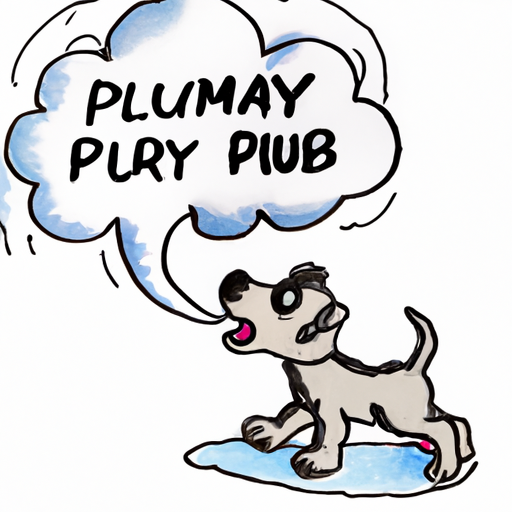As a caregiver, understanding your puppy’s barks can be an enlightening experience. This guide will help you decipher the messages behind each bark and respond appropriately to your puppy’s needs.
1. Understanding the Types of Barks
There are several types of barks and each has a different meaning. Here are some common types:
- Alert barks: These are sharp and quick. They usually mean, “Hey, something’s happening!”
- Playful barks: High-pitched and sometimes accompanied by a wagging tail.
- Aggressive barks: Deep and growly. They usually mean, “Stay away!”
- Anxious barks: Continuous and high-pitched. They indicate, “I’m nervous!”
2. Decoding the Bark
Each type of bark communicates a different message. Understanding these nuances can help improve your relationship with your puppy.
- Alert Barks
These barks are your pup’s way of telling you something unusual is happening, like a stranger approaching or a peculiar sound.
- Playful Barks
If your puppy is barking in a high-pitched tone while wagging its tail, it probably wants to play.
- Aggressive Barks
These barks are a warning. They could also be a sign of fear or anxiety.
- Anxious Barks
Continuous, high-pitched barks suggest your puppy is anxious or frightened.
3. Responding to Barks
Once you’ve decoded the bark, it’s time to respond. Here’s a table to guide you:
| Type of Bark | Response |
|---|---|
| Alert | Investigate the cause |
| Playful | Engage in play |
| Aggressive | Give space and reassurance |
| Anxious | Provide comfort |
4. Training Your Puppy to Bark Less
While barking is a natural behavior, excessive barking can be problematic. Use positive reinforcement to encourage quiet behavior.
5. When to Seek Professional Help
If your puppy’s barking becomes uncontrollable or aggressive, it might be time to seek the help of a professional dog trainer or behaviorist.
6. The Role of Health in Barking
Underlying health issues can lead to excessive barking. Regular veterinary check-ups can help ensure that your puppy’s barking isn’t health-related.
7. The Barking-Puppy Caregiver Bond
Understanding and responding to your puppy’s barks can strengthen your bond. It’s a way of communicating and showing your puppy that you care about its needs and feelings.
8. FAQ
What does it mean if my puppy barks at strangers?
This could be due to fear, territorial behavior, or lack of socialization. Gradual exposure and positive reinforcement can help.
How can I stop my puppy from barking at night?
Ensure your puppy is well-exercised, has had a bathroom break, and has a comfortable sleeping environment.
What if my puppy doesn’t bark?
Some dogs are naturally quieter than others. If your puppy is healthy and responsive, there’s likely no cause for concern.
When should I be concerned about my puppy’s barking?
If your puppy’s barking is accompanied by aggression, fear, or anxiety, it would be wise to consult a professional.
Understanding your puppy’s barks can be a rewarding journey of companionship and care. Remember, patience and consistency are key. Happy bark decoding!



